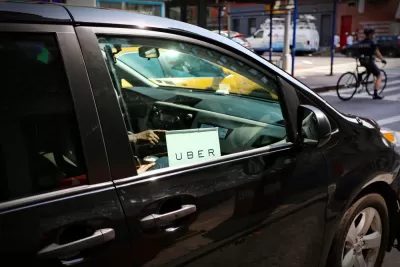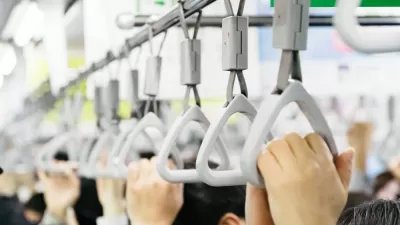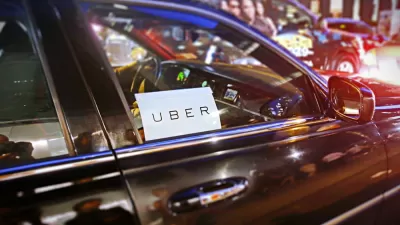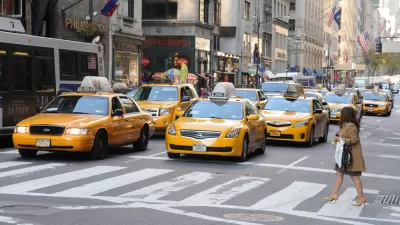Cities using Uber to supplement or replace public transit may find their dependence on the service detrimental to their cities, when prices rise and alternatives aren't available.

In a piece for Slate, Henry Grabar argues that cities and suburbs subsidizing and depending on Uber may come to regret it. "Bus and train riders on the peripheries of Philadelphia; Oakland, California; Tampa, Florida; and other cities have been treated to a little luxury at the end of the commute: a publicly subsidized Uber ride home," Grabar reports.
This may seem like a good way to solve the "last mile problem," but there's a danger in using these private services is that there incentives may not always line up with that of city officials and transit riders. "…at the moment Uber and Lyft are subsidizing U.S. ridership, and one day they’re going to start profiting from it," Grabar writes. That means either higher prices are coming or these services will have to drastically change the kind of services they're offering.
Worse still, Grabar contends, "The rise of ride-hailing companies is increasingly viewed not as a fix for bad service but as its justification." That they can just take the Uber mentality is dangerously short sighted.
FULL STORY: “They Can Just Take an Uber”

Maui's Vacation Rental Debate Turns Ugly
Verbal attacks, misinformation campaigns and fistfights plague a high-stakes debate to convert thousands of vacation rentals into long-term housing.

Planetizen Federal Action Tracker
A weekly monitor of how Trump’s orders and actions are impacting planners and planning in America.

San Francisco Suspends Traffic Calming Amidst Record Deaths
Citing “a challenging fiscal landscape,” the city will cease the program on the heels of 42 traffic deaths, including 24 pedestrians.

Defunct Pittsburgh Power Plant to Become Residential Tower
A decommissioned steam heat plant will be redeveloped into almost 100 affordable housing units.

Trump Prompts Restructuring of Transportation Research Board in “Unprecedented Overreach”
The TRB has eliminated more than half of its committees including those focused on climate, equity, and cities.

Amtrak Rolls Out New Orleans to Alabama “Mardi Gras” Train
The new service will operate morning and evening departures between Mobile and New Orleans.
Urban Design for Planners 1: Software Tools
This six-course series explores essential urban design concepts using open source software and equips planners with the tools they need to participate fully in the urban design process.
Planning for Universal Design
Learn the tools for implementing Universal Design in planning regulations.
Heyer Gruel & Associates PA
JM Goldson LLC
Custer County Colorado
City of Camden Redevelopment Agency
City of Astoria
Transportation Research & Education Center (TREC) at Portland State University
Jefferson Parish Government
Camden Redevelopment Agency
City of Claremont





























